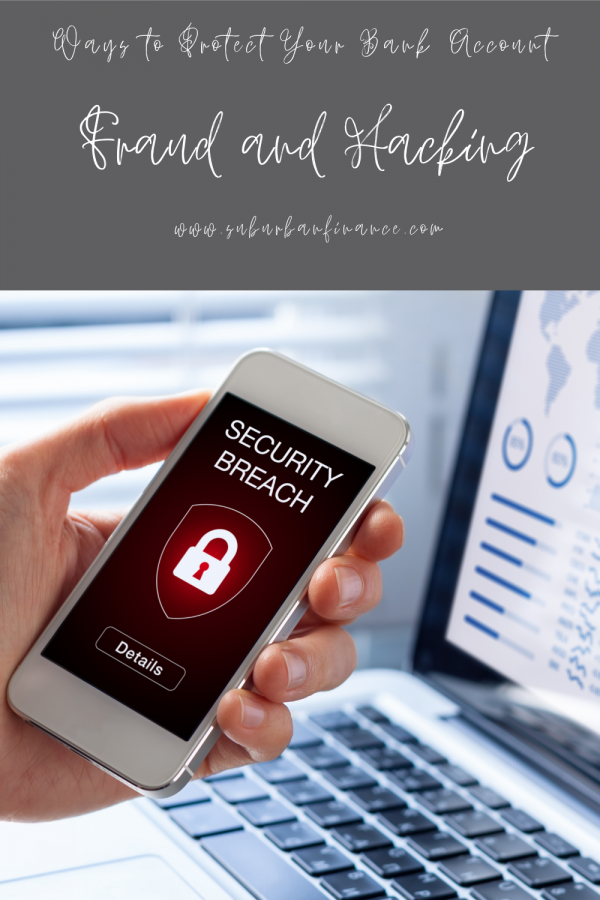Now that we live and work in the digital age, more Americans are using mobile banking than ever before. Due to social distancing measures and restricted lobby hours, online banking has become even more convenient. Since the beginning of 2020, the FBI has reported a 50% rise in mobile banking. However, that also means there are more incidents of fraud and hacking as well. Mobile banking also makes it easier to download false banking apps programmed to steal and take possession of your account information. Although this is not a new phenomenon, it is still crucial to find ways to protect your bank account from fraud and hacking.
10 Ways to Protect Your Bank Account from Fraud and Hacking
1. Only use official websites and apps associated with your bank or financial institution.
Online banking has revolutionized the way we manage money. However, you must take precautions to protect your bank account from fraud and hacking. Ensure you are only using the official sites and apps associated with your bank or financial institution. There are many Trojan viruses designed to mimic them, so verify the address of the site on your statements or cards. Also, only download mobile apps from reputable sites like Google Play or the App Store. Experts recommend that you avoid downloading from open forums since you may be putting sensitive information at risk.
2. Set up alerts and monitor the account’s activity on a regular basis.
Account alerts are an under-utilized security service every major bank offers. You can set them to email or text you whenever there is unusual activity on your account. There are various other alerts as well for balances, large purchases, single transactions, and large ATM withdrawals. These options keep you informed of all your accounts’ activities. Setting alerts make it easier to spot fraudulent activity than if you were just looking at your monthly statements. It is one more tool to keep your finances safe.
3. Protect your passwords and PIN numbers.
Unprotected passwords and PIN numbers are one of the easiest ways to expose your bank account to fraud and hacking. Although it is convenient, it is unwise to save or store them in your phone. If you save them infrequently used apps or websites, hackers can easily access your information using malware or programs that mirror your device. Additionally, you do not want to make passwords easy to guess by reusing the same ones or incorporating things easily connected to you. Choose stronger passwords that use combinations of letters, numbers and symbols to improve personal security.
4. Never include sensitive information on the unsecured communique.
In addition to protecting your passwords, you should also take measures to protect sensitive personal information too. Do not send personal or account information via email. When you have to exchange this kind of data, use dedicated portals specifically set up for such purposes. Also, be sure that you are not sharing too much information online about financial matters. You do not want to post too much on social media because you never know who could get a hold of this information and use it for their own gain.
5. Consider using a VPN to shield your sensitive information and passwords.
Another way to shield your information from fraudsters and hackers is by using a Virtual Private Network or VPN. These services do require a small monthly fee, but they guard against online password theft. Free ones may not protect you at all, so it is better to choose a credible provider. Most VPNs are inexpensive and simple to set up, so there is no need to be stingy about digital security.
6. Use multi-factor authentication to limit your exposure.
Using multiple identity verification methods adds an extra layer of security for your accounts. There are typically three types of authentication tools. The first is something you know, like a PIN or password. The second is something you have such as a text to your cell phone or email. The third and most secure is biometrics. These require a fingerprint, voiceprint, or iris scan. Having multi-factor authentication limits your exposure and risk of bank account fraud and hacking.
7. Enable and use the security functions on your mobile devices.
You are the first line of defense when it comes to protecting sensitive data. For this reason, you should always lock your devices. In case your phone is stolen, it will make it difficult for the average person to access it. After you realize it is lost or stolen, you can also use your account to track and disable it. These security features allow you to wipe all your information remotely before they have the opportunity to hack it.
8. Install antivirus and malware tracking software
Antiviruses and malware tracking software are more tools in your virtual security toolbox. Most also come with versions for both PC and mobile devices. They efficiently block popups which are a popular place for hackers to embed malware and viruses. Be sure to update your software, because cyber crooks look for weak spots in programs and operating systems. These types of software are excellent defense mechanisms if they are up-to-date. Schedule automatic updates so you do not leave yourself vulnerable.
9. Be wary of phishing emails and scams.
Phishing emails are one of the oldest tricks in the book, so don’t fall victim to frauds and hackers trying to get your information. Scrutinize the email address and embedded links. Check to see if the origin email is associated with your bank or financial institution. They often contain misspellings, incorrect numbers, or faulty links. You can also do a quick search to see if other people are receiving similar emails or flagged it as a scam. However, if you still feel it may be legitimate, contact your bank’s customer service to check the status of your accounts before responding to their emails. In these instances, it is always better to be safe than sorry.
10. Read the fine print before you agree to or sign anything.
Finally, carefully read through the privacy policy of any app or website you use. They will ask permission to access your camera, photos and microphone so be certain you are comfortable allowing it. At the end of the day, it is your responsibility to know what you are agreeing to, so be thorough. When it comes to protecting your personal information, you cannot afford to take shortcuts.
The Bottom Line
Even though there are many security services available, it is ultimately your responsibility to ensure your finances are protected against fraudsters and hackers. These tips provide a solid starting point, but if you have greater security concerns, you should discuss them with your financial advisor.
Read More
- Can you Refund Stolen Money from a Bank Account?
- Is Your Bank Account as Safe as You Would Like?
- Protect Yourself from Scammers and Pickpockets
Jenny Smedra is an avid world traveler, ESL teacher, former archaeologist, and freelance writer. Choosing a life abroad had strengthened her commitment to finding ways to bring people together across language and cultural barriers. While most of her time is dedicated to either working with children, she also enjoys good friends, good food, and new adventures.


